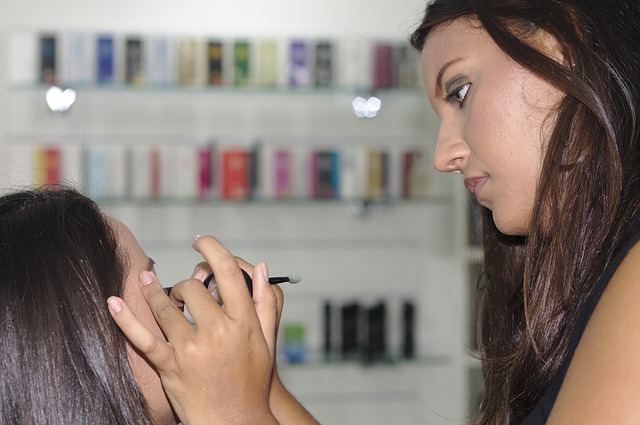Burning Money on Education Isn't Limited to College Students
By:
For those of us who aren't celebrities yet, department store makeup counters provide a low-cost option to feel like a star for an hour as our makeup is applied by a professional before proms, weddings, or important job interviews. Even if you aren't getting your makeup done, you might go to a department store counter to purchase makeup with the help of a pro. Pretty much the only reason to buy anything in person anymore is the staff. If you don't need help buying it, you'll probably just buy it online. But the makeup artist at the department store is not only a trained professional with a somewhat rare skill, she or he is the department store's marketing person on the front lines. Yet despite this fact, low-wage department store employees are often seen and treated as temporary, low-skilled workers.

What does it really take to work at a department makeup store counter? We asked one employee.
"Alex" (who is not allowed to talk about her job on social media) makes $10.50/hour plus a 3% commission on sales working at a department store makeup counter.
ATTN: What kind of training did you receive for your job?
They send you to a two-day training, but they pretty much want you to know what you're doing already. It's makeup sales. I have seven years of experience [as a makeup artist]... I went to cosmetology school, also.
ATTN: Is the job you have now your "ideal" job? Or did you think that your training would lead to to a different job?
Well, I'm going to the community college in town. I decided to go back to school because I knew that doing makeup forever wouldn't satisfy me. I started school again a few years ago. It's taking a while to finish because I have to work a lot to pay bills so I can only go part time. I went to cosmetology school and this is where I ended up. Working at a makeup counter was kind of my only option in the small town I live in now.
ATTN: What are some common misconceptions about your work?
People sometimes think that doing makeup at a makeup counter is glamorous somehow. It is not. It's mainly just sales and memorizing what's in skincare. Also organizing stock and my least favorite -- calling hundreds of people to get them to pre-order products so that they can get the gift with purchase.
ATTN: What was your best or worst experience at this job?
Customers get catty, and that sucks a lot. Plus people get really tiffy about commission. The best part is when I'm doing makeup.
ATTN: Would the minimum wage going up affect you/your wages?
Absolutely. Making just a few dollars more per hour would make a huge difference in my quality of life. I could probably switch to part-time instead of full-time so I could take more classes at a time.
Take Away: The expense of training
Alex's story brings up a common theme in today's job market. As companies decrease the amount of on-the-job training they offer and raise their expectations about the amount of training applicants will invest in on their own, the entire job market suffers. Potential employees invest more and more debt into education, which hurts consumer spending. Cosmetology school costs $10,000 a year for schools in major metropolitan areas. Yet, Alex has been a professional in her field for seven years and is still making close to minimum wage. Changing fields to earn more money means investing even more hard-earned money (and time) into further education. A raise of the minimum wage would mean her wages would likely raise as well, allowing her to finish school faster and not feel stuck in her current job. It would also mean that she had more money to spend on things other than on education and bills, which would be good for the whole economy.
